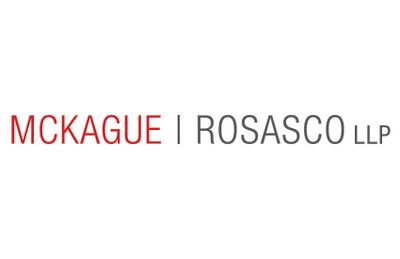New York Judge Overturns Portions of the Department of Labor’s Guidance on Coronavirus-Related Leaves
On August 05, 2020, a New York federal judge invalidated parts of the U.S. Department of Labor’s (“DOL”) rule that was written to clarify who qualifies for coronavirus-related emergency paid sick leave.
The DOL published a temporary rule on April 01, 2020 regarding application of the Families First Coronavirus Act (“FFCRA”), passed by Congress in March 2020. The intent of this rule was to provide relevant direction for employers on how to apply the emergency statutes passed by Congress during the pandemic. This case was filed in April by New York Attorney General Letitia James against the DOL for alleged overreach of administrative power. U.S. District Judge J. Paul Oetkan sided with the Attorney General for the most part, and held that certain parts of the rule went too far beyond the text of FFCRA and were invalid and exceeded the DOL’s authority.
First and foremost, this ruling was from a New York judge and it is unclear about the reach of this decision because the order is silent about its impact. At this time, this order should be considered persuasive authority on how employers react and respond. Potentially, judges throughout the country will have to decide for themselves to follow this order, or possibly, the DOL may elect to revise the rule based on the order that would apply to all states.
Below are some of the takeaways from the order.
Health Care Workers Definition Too Broad
The DOL’s definition of health care workers encompassed a broad range of employees, including any employee of a contractor at a hospital, medical school and a broad range of other places where “medical services are provided” (technically speaking this could include a cafeteria manager at a medical school, as one example). The court limited the definition for the health care worker exception to exclude individuals who had no connection or relevant position directly attributable to a healthcare system’s vitality.
Employer Consent for Intermittent Leave
The order also vacated portions of the DOL’s rule that limited workers’ ability to take intermittent leave without the employer’s permission. Under the FFCRA, intermittent leave was not permissible for situations that correlate with a higher risk of viral infection. Other leaves, namely time off taken by a parent due to school closures or childcare closures, could be taken intermittently, but required employer approval to do so. This consent requirement was stricken because the DOL failed to provide an appropriate justification for a blanket requirement of employer consent.
Requirement for Submission of Documentation
Another challenge to the DOL’s rule was the requirement for employees to provide a signed statement containing: the employees name, dates for which leave was requested, the coronavirus-qualifying reason for the leave, and a statement that the employee could not work or telework because of the aforementioned reason.
This portion was also invalidated because the FFCRA already provided certain requirements under both the Emergency Family and Medical Leave Expansion Act and the Emergency Paid Sick Leave Act, neither of which required documentation but only notice requirements. Because the DOL rule imposed a more stringent condition on taking leave, this portion of the rule was considered inconsistent with the statute’s provisions.
Work-Availability Requirements
The DOL opined in its rule that leaves were only available to employees if the works was available to the employees. Essentially, a worker could not request and take leave if they were furloughed. Consequently, the DOL only applied this rule to three out of the six leaves available, which the court concluded was “entirely unreasoned.” The order now allows for an employee that is furloughed to apply for and take one of the available leaves.
As noted, prior, the breadth of these changes is unknown at this time and changes could continue to come. With the constant changes in the legal landscape covering coronavirus-related legislation, it is imperative to seek legal assistance to effectively manage your legal obligations. Please contact the experts at McKague Rosasco LLP for any questions regarding coronavirus leaves.
Disclaimer: The information provided on this website does not, and is not intended to, constitute legal advice; instead, all information, content, and materials available on this site are for general information purpose only. Information on this website may not constitute the most up-to-date legal or other information. You should always consult an experienced attorney if you have any questions about your business, policies, or your particular circumstances.

